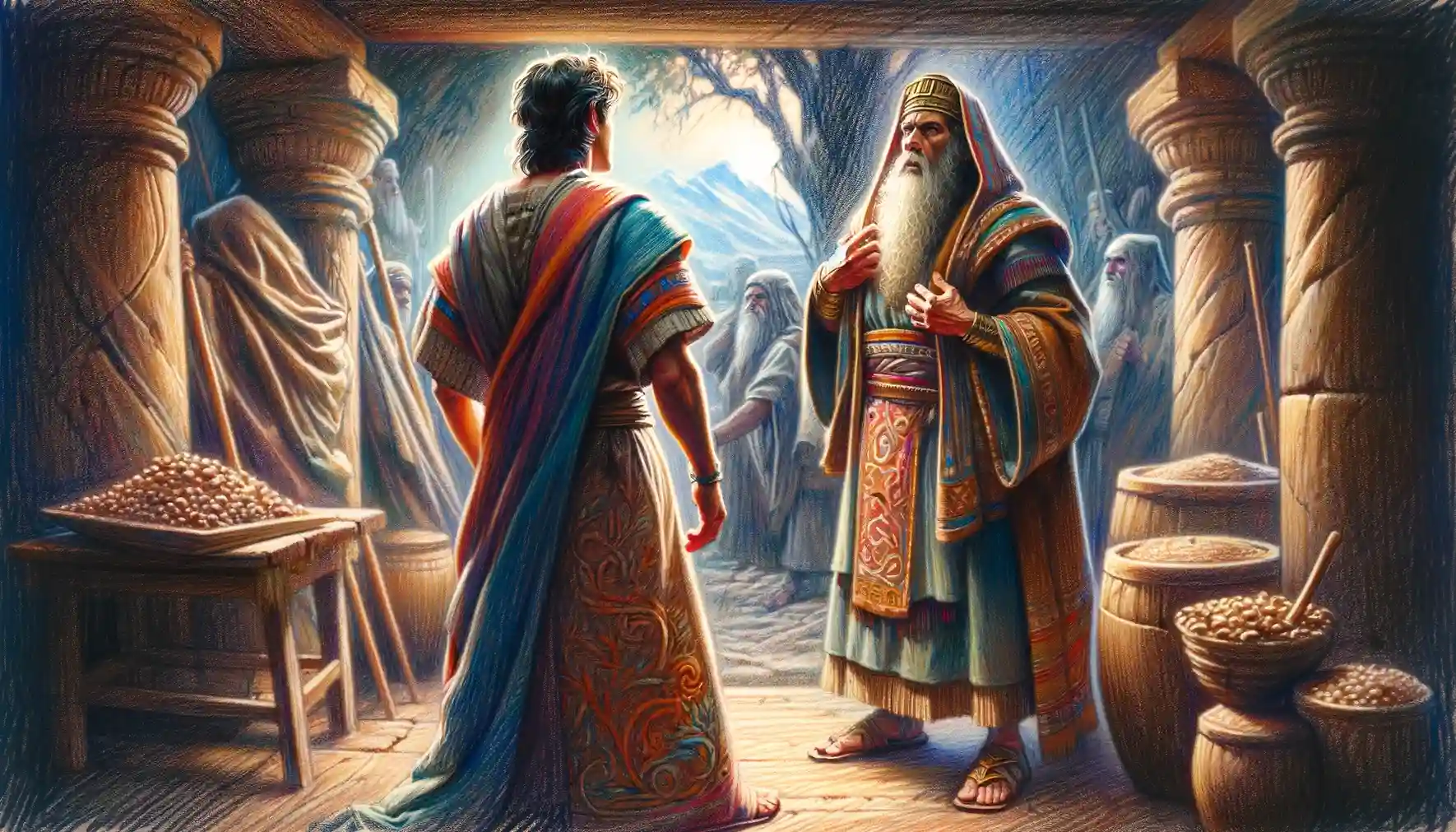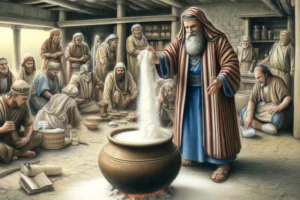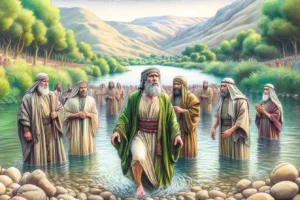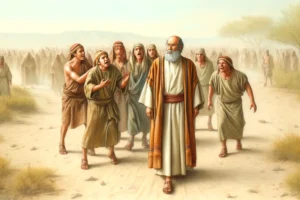
Healing of Hazael’s Illness
The narrative of Hazael’s encounter with Elisha, described in 2 Kings 8:7-15, is a complex and intriguing story that mixes prophecy with political intrigue. Here are some quick facts about the healing incident and its broader context:
- Elisha’s Visit: Elisha travels to Damascus, the capital of Aram, where King Ben-Hadad is ill. Ben-Hadad sends his official, Hazael, to meet Elisha with gifts, asking whether he will recover from his illness.
- Elisha’s Prophecy: Elisha informs Hazael that the king could recover from his physical illness, but he will indeed die. Elisha then stares at Hazael and begins to weep.
- Reason for Weeping: When questioned by Hazael about his tears, Elisha explains that he weeps because he knows the harm Hazael will do to the Israelites in the future, including burning their fortresses, killing young men, smashing children, and ripping open pregnant women.
- Hazael’s Rise to Power: The next day, Hazael smothers King Ben-Hadad with a wet cloth, killing him and usurping the throne, thus fulfilling part of Elisha’s prophecy about the evil he would perpetrate.
- Theme of Divine Foreknowledge and Human Agency: This story reflects on the themes of divine foreknowledge and human agency, questioning the inevitability of prophesied events and the moral responsibilities of the individuals involved.
The narrative of Hazael’s interaction with Elisha in 2 Kings 8:7-15 presents a complex interplay of prophecy, moral choice, and political intrigue, providing rich material for theological and ethical analysis. Here is a comprehensive examination of this passage:
Context and Background
Elisha’s journey to Damascus occurs during a time of ongoing conflict between Israel and Aram (Syria). King Ben-Hadad of Aram, suffering from illness, sends Hazael with gifts to inquire of Elisha about his recovery prospects. This scenario sets the stage for a dramatic exploration of prophetic insight and its implications for human actions.
Theological Themes
Divine Foreknowledge: Elisha’s prophecy that Ben-Hadad could recover but would definitely die introduces a complex theological question about God’s foreknowledge and human free will. Elisha’s tears upon foreseeing the atrocities Hazael would commit against the Israelites further complicate the narrative, suggesting a deep emotional response to the inevitable suffering that will ensue.
Prophetic Insight and Ethical Responsibility: Elisha’s revelation to Hazael serves as a test of character for Hazael and raises questions about the role of prophecy in shaping future events. By informing Hazael of the violence he will perpetrate, Elisha places ethical responsibility squarely on Hazael’s shoulders, highlighting the prophetic role in confronting individuals with their potential for good or evil.
Rise to Power and Moral Ambiguity: Hazael’s actions following the prophecy—killing Ben-Hadad and seizing the throne—demonstrate the darker aspects of political power and ambition. The narrative does not shy away from presenting Hazael’s morally questionable ascent to power, providing a realistic portrayal of political dynamics in the ancient Near East.
Literary Analysis
Character Development: Hazael’s transformation from a servant to a king, prompted by a prophetic revelation, is a pivotal character arc that explores themes of ambition, destiny, and moral choice. The narrative leaves open questions about Hazael’s motivations—whether he acted out of belief in his destiny, personal ambition, or a combination of both.
Symbolism and Irony: The use of a wet cloth to smother Ben-Hadad symbolizes the stifling of life and usurpation of power, contrasting with the healing that Ben-Hadad sought from Elisha. The irony of seeking life but finding death reflects the unpredictable outcomes of seeking prophetic counsel.
Historical and Cultural Context
In the historical context of the narrative, prophets often played roles that intersected with political power, influencing kings and political events. The story of Hazael underscores the prophet’s influence not just within Israel but also in foreign kingdoms, demonstrating the perceived power of Israelite prophets in the broader region.
Conclusion
The account of Hazael and Elisha in 2 Kings 8:7-15 offers a nuanced reflection on the intersections of prophecy, ethics, and political power. It challenges readers to consider the implications of divine foreknowledge, the ethical responsibilities it imposes on individuals, and the profound impact of personal choices in fulfilling or resisting destiny. This narrative is a compelling exploration of human nature, divine providence, and the moral complexities inherent in leadership and power.
Leave A Reply
You must be logged in to post a comment.




1 Comment